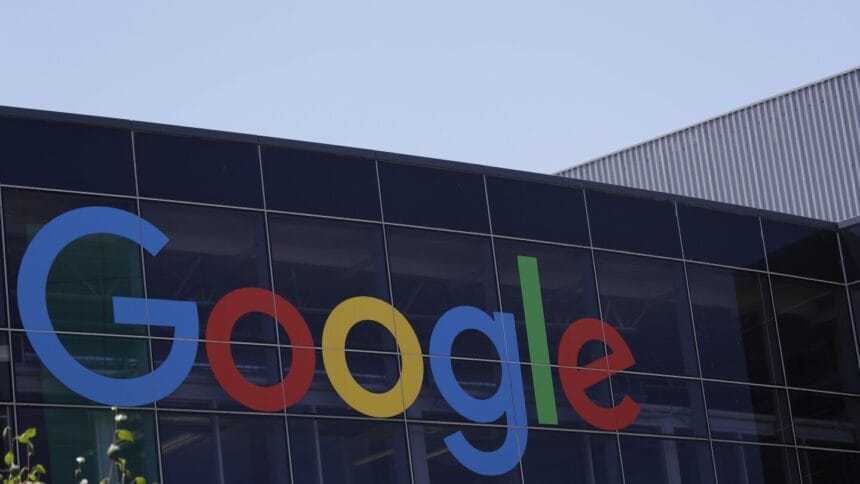
European Regulators Strike Hard Against Tech Giant’s Anti-Competitive Practices
The European Commission delivered a crushing blow to Google this week, imposing a staggering €2.95 billion fine (approximately $3.5 billion) for violating antitrust regulations. This penalty represents one of the most significant regulatory actions taken against the tech giant in recent years.
The Core Violations That Triggered EU Action
European regulators determined that Google systematically abused its dominant market position by prioritizing its own advertising exchange, AdX, across its publisher ad server and ad-buying platforms. This practice effectively squeezed out competitors and manipulated the digital advertising ecosystem.
The Commission’s investigation revealed that Google created an unfair advantage for itself within the complex advertising technology supply chain. By giving preferential treatment to its own services, the company violated fundamental principles of market competition.
Swift Action Required from Google
EU competition chief Teresa Ribera emphasized the severity of the situation, stating that “Google must now come forward with a serious remedy to address its conflicts of interest, and if it fails to do so, we will not hesitate to impose strong remedies”.
The tech giant has been given a strict 60-day deadline to end these self-preferencing practices. Additionally, Google must implement comprehensive measures to eliminate conflicts of interest throughout the advertising technology supply chain.
Political Tensions Emerge Over EU Decision
The announcement sparked immediate controversy, with President Donald Trump criticizing the European Union’s actions. Trump expressed concerns about what he described as unfair penalties against American technology companies, including Google and Apple.
The president threatened to initiate Section 301 proceedings to counteract these penalties, arguing that such actions harm American innovation and taxpaying companies. This response highlights growing tensions between US and EU regulatory approaches toward big tech.
Google’s Defense Strategy
Google quickly announced plans to appeal the Commission’s decision. Company representatives argue that providing services to both ad buyers and sellers does not constitute anti-competitive behavior. They emphasize that more alternatives to Google’s services exist now than ever before.
The tech giant maintains that its business practices serve the market effectively and that competition remains robust in the advertising technology sector.
Historical Context and Industry Impact
This fine represents the EU’s second-largest antitrust penalty ever, trailing only behind a $5 billion fine imposed on Google in 2018. The decision demonstrates European regulators’ commitment to maintaining competitive digital markets.
Meanwhile, Google achieved a partial victory in US courts this week. Although a federal judge previously ruled that the company illegally maintained a search monopoly, proposed remedies fell significantly short of Justice Department recommendations to force asset sales.
The Broader Digital Market Landscape
European officials stress that digital markets must serve people through principles of trust and fairness. When markets fail to meet these standards, regulatory intervention becomes necessary to prevent dominant players from exploiting their power.
The advertising technology industry continues evolving rapidly, with multiple stakeholders competing for market share. This regulatory action aims to ensure fair competition and protect smaller players from being squeezed out.
The European Commission’s decisive action against Google sends a clear message about regulatory expectations in the digital advertising space. With billions of dollars at stake and fundamental market principles under scrutiny, this case will likely influence future antitrust decisions across both European and American jurisdictions.
Google’s response to these requirements will determine whether additional enforcement measures become necessary. The company’s ability to address conflicts of interest while maintaining competitive services will be closely monitored by regulators worldwide.
This development represents another chapter in the ongoing global conversation about big tech regulation, market competition, and the balance between innovation and fair business practices.
Related posts:
 Perplexity Shakes Tech World with Bold $34.5 Billion Chrome Browser Bid
Perplexity Shakes Tech World with Bold $34.5 Billion Chrome Browser Bid
 Google Fights Back: Tech Giant Claims AI Search Isn’t Destroying Website Traffic (But Data Tells Different Story)
Google Fights Back: Tech Giant Claims AI Search Isn’t Destroying Website Traffic (But Data Tells Different Story)
 iPad Air Hits Record Low Price: M3-Powered Tablet Now Under $450
iPad Air Hits Record Low Price: M3-Powered Tablet Now Under $450
 Samsung Returns to the Top of the Smartphone Market
Samsung Returns to the Top of the Smartphone Market




Leave a Comment
You must be logged in to post a comment